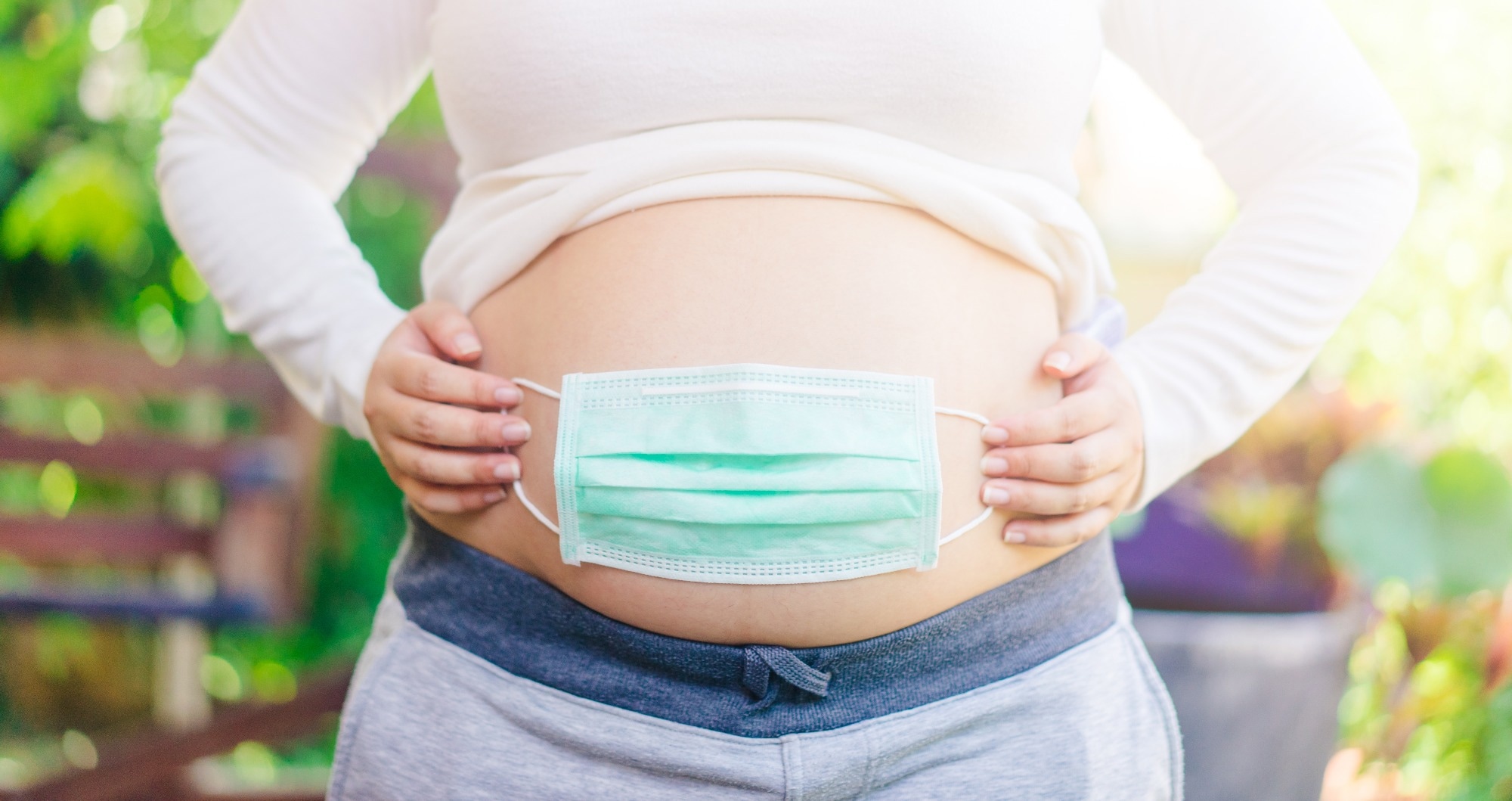In a recent systematic review published in the Scientific Reports Journal, researchers evaluated the mother-to-infant transmission rates of severe acute respiratory syndrome coronavirus 2 (SARS-CoV-2) infections in the perinatal and early postnatal stages for mothers in high-income countries who tested positive for coronavirus disease 2019 (COVID-19).
Study: Mother-to-child transmission of SARS-CoV-2 infection in high-income countries: a systematic review and meta-analysis of prospective observational studies. Image Credit: MIAStudio/Shutterstock.com
Background
The COVID-19 pandemic and the initial lack of clarity about the virulence and transmissibility of SARS-CoV-2 resulted in substantial changes in social interactions.
The fear of potential viral transmission from a COVID-19-positive mother to the infant during the perinatal or postnatal period also had an impact on various practices that are considered essential for mother-infant bonding and initiating breastfeeding, such as rooming-in and skin contact.
Furthermore, concerns about viral transmission through breast milk also resulted in a significant decrease in breastfeeding rates in COVID-19-positive mothers, increasing the use of breast milk substitutes.
However, emerging studies have reported that breastfeeding during maternal SARS-CoV-2 infection is considered safe, and breastfeeding is essential to provide the infant with optimum nutrition and protect the infant against diseases.
Furthermore, research indicates that breastmilk does not contain viral particles that can replicate but contains neutralizing antibodies passed on from mothers with viral infections.
However, given the heterogeneous results from studies examining the mother-to-infant transmission of SARS-CoV-2, the use of protective measures and physical distancing continues to be recommended to mothers with COVID-19.
About the study
In the present study, the researchers conducted a systematic review and meta-analysis to understand the SARS-CoV-2 transmission rates between COVID-19-positive mothers and neonates in high-income countries during the perinatal and postnatal periods.
Prospective observational studies in English that examined infants born to COVID-19-positive mothers were included in the study.
The eligibility criteria for the review consisted of a laboratory-confirmed SARS-CoV-2 infection in the mother, confirmed through tests of nasopharyngeal swabs a week before or on the delivery day, and a laboratory-confirmed SARS-CoV-2 infection in the infant within 30 days of delivery.
The included studies had to have been conducted in World Bank-classified high-income countries and comprised more than ten infected mothers.
Data extracted from the studies included publication date and author details, the country the study was conducted in, year of participant enrollment, the number of SARS-CoV-2 infected mothers, the number of infants that were COVID-19 positive and negative, the gestational age at the time of delivery, and clinical presentations of COVID-19 in the mother and infant, including the need for mechanical ventilation or oxygen supplementation.
Information on preventative measures such as physical distancing between the mother and the neonate, absence of rooming-in, no breastfeeding, hand hygiene, use of gloves and facemasks by the mothers, and breastmilk pasteurization was also gathered.
The outcome of the meta-analysis was the estimated number of infants with SARS-CoV-2 infections born to COVID-19-positive mothers.
Subgroup meta-analyses also examined the outcomes in terms of the year of enrollment, the use of a minimum of two preventative measures, and the absence of rooming-in.
Results
The results suggested that the rate of SARS-CoV-2 transmission between infected mothers and infants during the perinatal period was low, and the avoidance of rooming-in was unnecessary.
Furthermore, using preventative measures such as wearing face masks and gloves by the mother and physical distancing between mother and infant effectively reduced the risk of SARS-CoV-2 transmission from the infected mother to the neonate.
These results also matched those from studies from middle- and low-income countries.
The examination of clinical outcomes in infants with SARS-CoV-2 infections reported that a tiny proportion of the infants required ventilatory support or oxygen supplementation. This indicates that the recovery rates and overall outcomes in COVID-19-positive infants were favorable.
The data also indicated that the potential benefits of practices such as skin contact between the mother and infant, rooming-in, and breastfeeding outweighed the potential transmission risk of SARS-CoV-2 from mother to infant.
This was supported by the fact that after the first wave of the COVID-19 pandemic, once there was more clarity on the transmissibility and severity of the disease, international institutions such as the World Health Organization had stopped recommending preventive measures such as lack of contact between the mother and infant.
Conclusions
Overall, the findings indicated that the transmission rates of SARS-CoV-2 from infected mothers to neonates in high-income countries are very low.
Furthermore, evidence suggests that the benefits of practices that improve mother-infant bonding, such as breastfeeding, skin contact, and rooming-in, outweigh the risk of SARS-CoV-2 transmission between the mother and infant.
However, while the probability of adverse outcomes in SARS-CoV-2 infected infants is extremely low, using preventative measures such as wearing face masks can reduce the risk of transmission.
